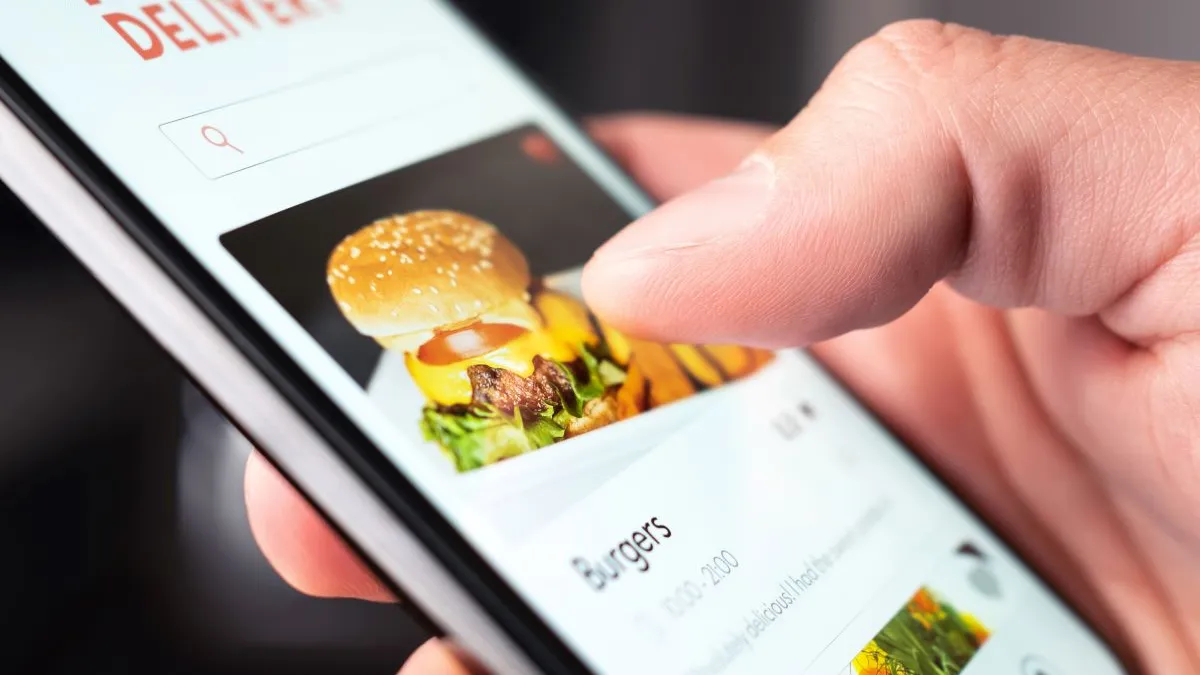Dive Brief:
- Uber sued DoorDash Friday, accusing the marketplace aggregator of anti-competitive actions, according to a copy of a lawsuit filed in state court in California, which Uber emailed to Restaurant Dive. DoorDash denied these allegations.
- Uber claims DoorDash punishes partner restaurants for not using DoorDash’s first-party delivery, also known as white-label delivery, for branded apps and websites. The suit claims DoorDash does not allow these restaurants to use a separate company like Uber Eats, per the lawsuit.
- Per the suit, DoorDash threatened to raise fees for partner restaurants, potentially adding millions in costs, and threatened to remove the restaurants from the DoorDash app unless they agreed to exclusive or near-exclusive use of DoorDash’s first-party restaurant delivery tech.
Dive Insight:
Uber claims it has lost millions of dollars in revenue and that DoorDash “unlawfully restricted its ability to grow Uber Direct, the Uber Eats platform for first-party delivery,” according to the lawsuit.
Both Uber Eats and DoorDash offer white-label solutions for restaurants that want to accept delivery orders directly from their websites or apps. This allows operators to gather customer information and better understand ordering habits. Many restaurants use both first-party and third-party delivery to reach the most customers.
Uber has been making strides with its Uber Direct product, partnering with Toast Delivery to allow Toast’s restaurant partners to use the first-party platform last year. It has also partnered with P.F. Chang’s in the U.S. and Burger King in the U.K., according to a recent earnings release.
Uber claims that while DoorDash is responsible for more than 50% of all third-party deliveries in the U.S., it is also the largest first-party delivery provider and self-reports that it partners with over 90% of major restaurant brands and high-volume restaurants. These restaurants typically work with DoorDash on an exclusive or preferred basis through DoorDash’s Drive On-Demand product. Uber claims some of its restaurant partners are dissatisfied with DoorDash’s practices.
“We’ve increasingly heard complaints from restaurants that DoorDash’s tactics are limiting that freedom and punishing them for seeking better options. We hope this filing puts an end to those unfair practices so that restaurants can choose what’s best for them without fear of penalty or retribution,” Sarfraz Maredia, head of the Americas for delivery at Uber, wrote in an emailed statement.
Restaurants benefit from having multiple first-party delivery providers as they can compete on speed and price, Uber claimed in the lawsuit.
“When there are co-preferred arrangements with two or more providers, the providers can compete for each delivery (often through an automated auction process), and typically the provider with the fastest delivery time, or best balance of reliability and cost, wins, benefitting both the end-customer and the restaurant,” the lawsuit said.
Because Uber Eats and DoorDash have different market shares in different regions, restaurants benefit from working with multiple providers, which allows for faster delivery speeds and “impacts customer satisfaction,” according to the complaint.
The lawsuit claims that if restaurants look into or try to partner with Uber Eats on a co-preferred basis for first-party delivery, DoorDash refuses to provide first-party delivery on a co-preferred basis. The suit also claims DoorDash then threatens to raise fees on the DoorDash app and/or to demote the restaurant’s search position, or to remove some of the restaurant’s locations on the app altogether.
With so much delivery business coming through DoorDash, enterprise restaurants have “no choice but to cave to DoorDash’s demands,” the suit alleges.
Uber claims that these actions have led multiple restaurant customers to cancel existing agreements with Uber Eats for first-party delivery or decline to renew or engage in a partnership with Uber Eats for first-party delivery. The restaurants instead chose DoorDash for a preferred relationship.
“Uber’s restaurant-customers have reported feeling like they have a ‘gun to their head,’ that DoorDash is a ‘monopolist,’ and that they are being bullied by DoorDash,” the lawsuit states.
DoorDash denied all of these claims.
“Uber’s case has no merit,” a DoorDash spokesperson said in an email. “Their claims are unfounded and based on their inability to offer merchants, consumers, or couriers a quality alternative.”














